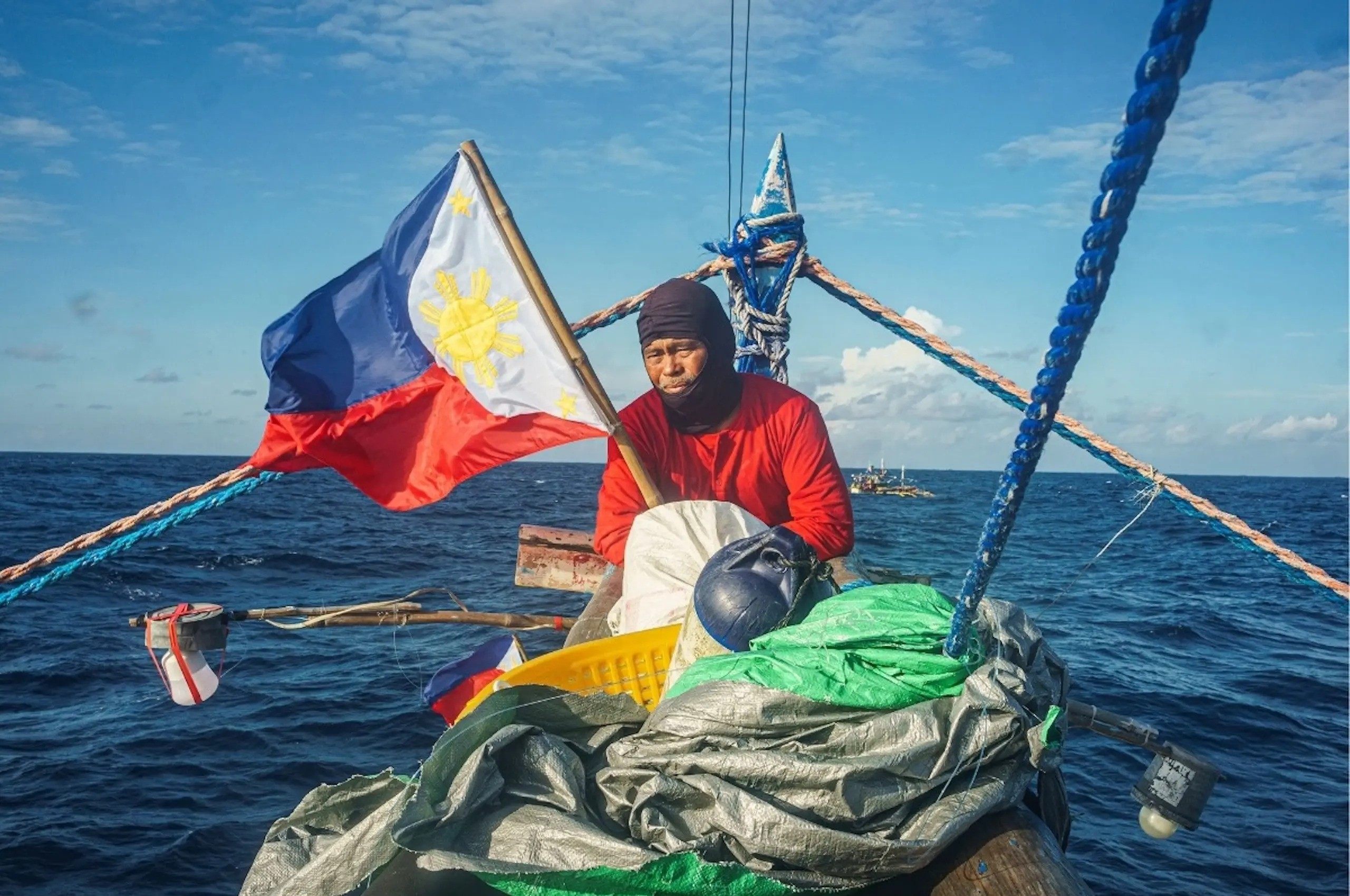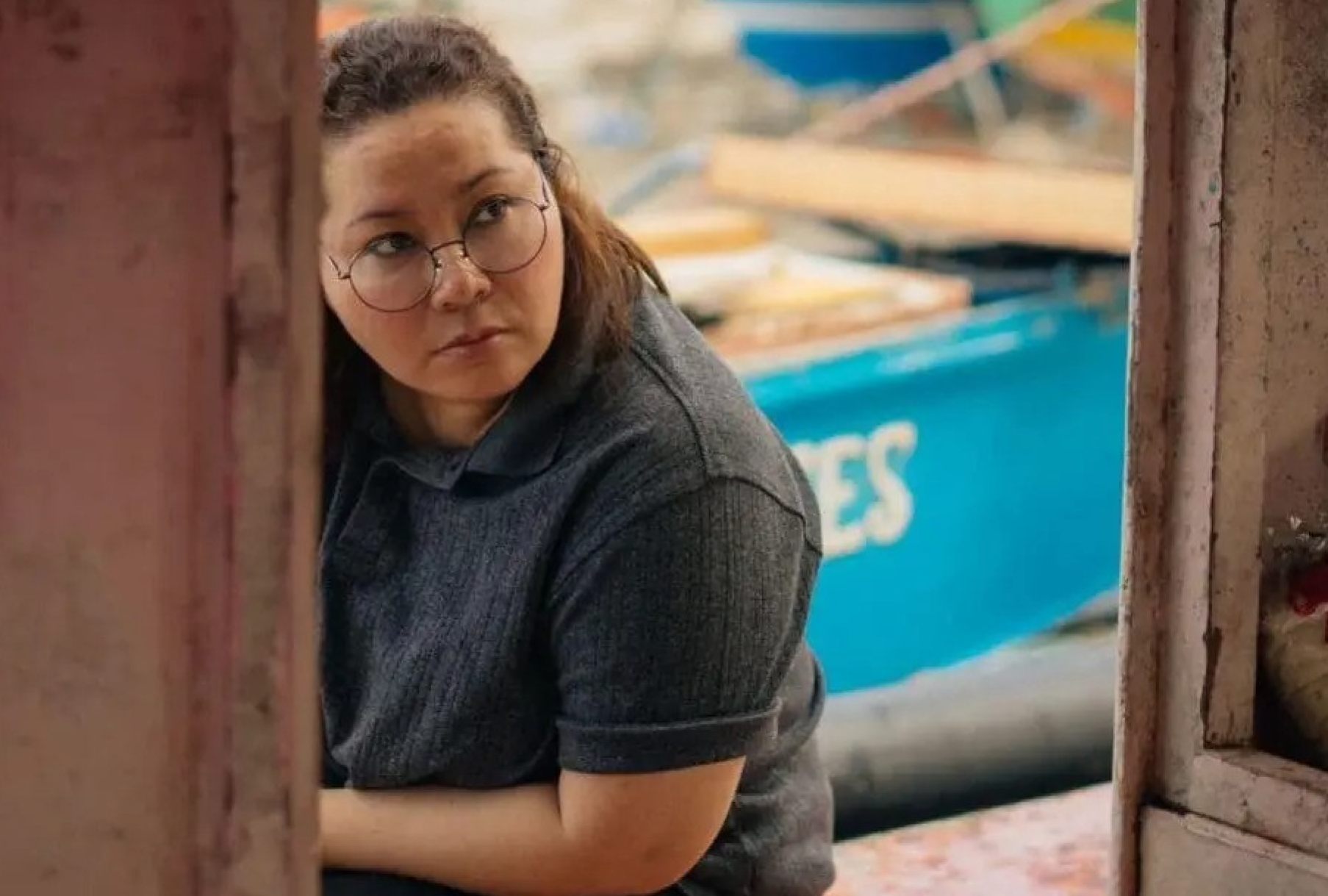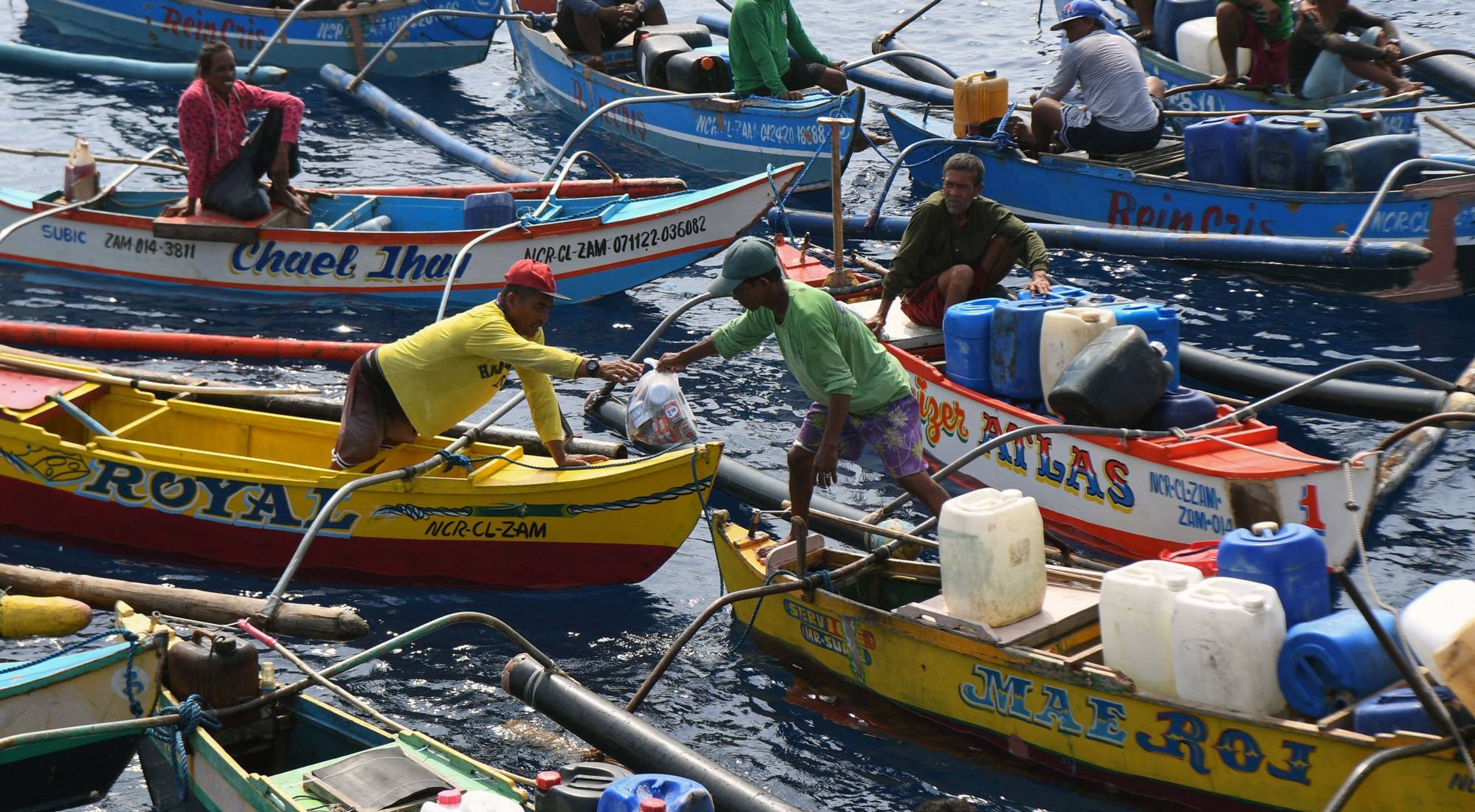Filipino film that China wanted to cancel wins at New Zealand festival
‘You can cancel a screening, but you cannot cancel a story whose time has come,’ ‘Food Delivery’ director Baby Ruth Villarama says

A Filipino documentary spotlighting the daily struggles of fishermen, naval cooks and coastguard personnel in the contested South China Sea has earned international recognition, with its director telling This Week in Asia that the award was a validation of honest storytelling in the face of political pressure from Beijing to cancel its screening.
Food Delivery: Fresh from the West Philippine Sea took home the Tides of Change prize at the Doc Edge Festival in Auckland, New Zealand, on July 3. Directed by Baby Ruth Villarama, the film chronicles the human dimension of Manila’s maritime claims, offering what she described as a “gentle yet powerful” way of reframing geopolitical tensions.
Villarama is best known for her award-winning 2016 documentary Sunday Beauty Queen about Filipino domestic workers in Hong Kong, which earned Best Picture at the Metro Manila Film Festival. Her latest film’s win in New Zealand comes after it was pulled from a Philippine event earlier this year for undisclosed reasons.
Just days before its scheduled premiere at Manila’s Puregold CinePanalo Festival in March, the festival organiser and film producer released a joint statement confirming the movie had been pulled. “While the decision was made jointly … it is clear that external factors played a role in this outcome,” they said, without providing further details.

Villarama told This Week in Asia the experience was disheartening, but her team “quietly submitted” the film to overseas festivals. Doc Edge was the first to respond.
“They saw it not as a threat, but as an urgent human story worth sharing with the world and the people of New Zealand,” she said.
Days before it was scheduled to premiere at the festival, officials from the Chinese consulate in New Zealand reportedly asked festival organisers to cancel screenings of the film “in the interest of public and China-New Zealand relations”. Doc Edge published the full statement from the Chinese consulate on its website “for the sake of transparency and fairness”.
“The documentary … is rife with disinformation and false propaganda, serving as a political tool for the Philippines to pursue illegitimate claims in the South China Sea. Its screening would severely mislead the public and send the wrong message internationally,” the email read.
“This documentary disregarded history and facts, and is designed to amplify the Philippines’ wrong position on the issue concerning the South China Sea and deliberately distort and hype up the maritime situation. Trying desperately to justify the unjustifiable will not help the Philippines build trust with the international community.”
China and the Philippines have been embroiled in maritime tensions in the South China Sea, with Beijing refusing to recognise the 2016 arbitral court’s ruling in favour of Manila’s claims over the disputed waters.
However, the festival organisers refused the request, saying their event was meant to give a voice to independent filmmakers. “Doc Edge stands by our kaupapa [principles] and the festival’s independence and curatorial freedom,” they said in their official response.
Villarama said that she was informed about the consulate’s request only hours before the screening.
Unhandled type: inline-plus-widget {“type”:”inline-plus-widget”}
“How Doc Edge handled the situation was, to me, a class act in cultural diplomacy. They didn’t escalate; they simply stood their ground. They protected the space for honest storytelling without antagonising anyone. In that moment, they reminded us all why festivals like this exist – not just to showcase films, but to defend the freedoms that make films like Food Delivery possible,” she said.
Philippine National Security Adviser Eduardo Año commended Doc Edge “for refusing to give in to foreign pressure and for defending the right to tell stories that matter”.
“The use of diplomatic pressure to demand the cancellation of the screening of said documentary represents a blatant attempt to silence a powerful narrative that exposes the truth about the situation in the West Philippine Sea and the daily realities faced by Filipino fisherfolk. This interference is not only unacceptable, it is a direct affront to the principles of free expression, artistic freedom and democratic discourse,” he said in a statement on Tuesday.
“Let Food Delivery be seen. Let our stories be heard. And let those who try to suppress the truth know this: the Philippines will never be silenced.”
‘Deeply human’ connection
Villarama said the film was conceived as a way to shift focus from the typical geopolitical framing of South China Sea disputes to the lived realities of Filipinos on the front line.
“I was searching for something that could connect us beyond all the tension. Something deeply human … I wanted to reach people beyond the polarising politics, believing that food can be a bridge for mutual appreciation,” she said.
Food, she said, was a “gentle yet powerful entry point, cherished by both Filipinos and Chinese alike, and capable of bringing people together”.
“It led me to the quiet stories of how food is delivered to those protecting our seas – by the hard work of naval cooks packing to deliver to these contested islands, and the steadfast efforts of fishermen, taking nature’s bounty straight from the ocean to our tables.”

Villarama said that in the conversations surrounding the tensions, “what’s often missing is the human side: the fishermen who risk their lives every day, and the quiet efforts of the coastguard to keep them safe, even with limited resources”.
“What drew me in was the quiet dignity of service. When I met the naval cooks packing food to deliver in these contested remote islands and features, knowing those meals would travel across dangerous waters, I realised this was a powerful metaphor for the kind of resistance we practice as a people. We fight not with firepower, but with persistence, with care, and with our deep sense of responsibility to feed and protect,” she said.
At the film’s question and answer session, Filipinos based in New Zealand told her that they had never seen the tensions “told through such a personal and human lens as well as the first generation of Filipinos who have no idea about what’s going on in the Philippines”.
“Many didn’t realise how deeply food security, maritime conflict and dignity are intertwined,” she said.
The documentary was shot over 60 days, including securing access with local government agencies and uniformed services.
“Some were hesitant, others took a long time to respond or would pass us to different people with dead ends. It took months of convincing, and countless hours just waiting in lobbies, hoping someone would finally say yes. There were times we almost gave up,” Villarama said.
“But the fishermen’s experiences – that raw honesty and quiet resilience – were the most priceless to me.”
Her film crew eventually joined fishermen on their expeditions twice, and she was struck by the “delicate relationship” between the fishermen and the Philippine coastguard.
“Many of the fishermen feel they’ve been left to fend for themselves, yet they still look to the [coastguards] for protection. Meanwhile, the coastguard operates under enormous constraints with limited vessels, limited jurisdiction, and often facing overwhelming foreign presence,” she said.
“I wanted to explore that tension and that faith – this fragile but enduring thread that connects civilians and uniformed personnel in a contested sea. Because in the end, they’re all Filipinos, trying to survive in their own way, on the same waters, facing the same storm.”
Winning the award made her feel seen, she said. “Not just me, but an entire Filipino lineage who have long lived in the peripheries – our fisherfolk, naval cooks, young coastguard cadets, and the mothers we filmed.”
Her team is in the process of securing Filipino film distributors willing to screen the film back in the Philippines, as well as arranging community screenings and school partnerships. They are also looking at potential US screenings and showing Food Delivery at other film festivals abroad.
“We’re launching an impact campaign to use the film as a conversation starter around food security, maritime rights, and peace. This is just the beginning, and we’re hopeful the momentum continues.” she said.
“You can cancel a screening, but you cannot cancel a story whose time has come.”